Guest blog: How Fairtrade impact achieves the Sustainable Development Goals
Did you know that your morning cup of tea or coffee can change lives every day?
We care deeply about people and the planet. Working towards fairness for all and sustainability is at the heart of everything we do at Fairtrade.
Fairtrade is about ending poverty through helping farmers and workers to get better prices, decent working conditions, sustainable livelihoods, and fairer terms of trade. By enabling companies to pay fair and sustainable prices (which must never fall lower than the market price), Fairtrade addresses the injustices of conventional trade, which often discriminates against the poorest, most marginalised producers.
![]()
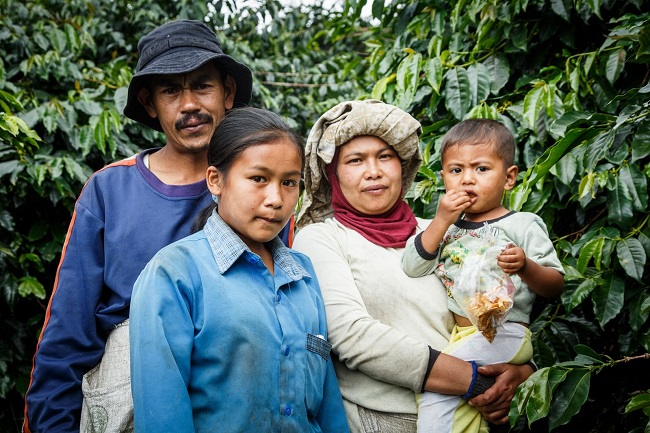
Saiban and Walijah, members of the cooperative KBQB, Indonesia, with two of their children in the coffee garden (Credit: Nathalie Bertrams/Fairtrade International)
Fairtrade and the Sustainable Development Goals
Fairtrade’s work helping to empower farmers and workers is a cause very close to my heart and one that closely aligns with the United Nations’ Sustainable Development Goals (SDGs).
The SDGs outline 17 global commitments to end poverty, protect the environment and the planet, and bring the people of the world greater peace and prosperity. At Fairtrade, our model and our programs contribute directly to eight of the goals, and provide systemic support for the rest.
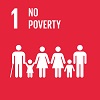 Goal 1 of the SDGs is to end poverty in all its forms everywhere. Fairtrade works with more than 1.6 million farmers and producers to ensure they receive a fair price for their produce or labour and are able to invest in their futures.
Goal 1 of the SDGs is to end poverty in all its forms everywhere. Fairtrade works with more than 1.6 million farmers and producers to ensure they receive a fair price for their produce or labour and are able to invest in their futures.
Goal 2 is to end hunger, achieve food security and improved nutrition and promote sustainable agriculture. When small-scale farmers and workers have access to fair prices and wages they are better placed to invest 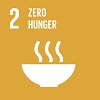 in storage facilities and secondary income streams to make farms more resilient, or implement better farming methods to improve yields. Sometimes a fair wage can be the difference between being able to buy a range of food for a farming family or having to live on the one crop they produce.
in storage facilities and secondary income streams to make farms more resilient, or implement better farming methods to improve yields. Sometimes a fair wage can be the difference between being able to buy a range of food for a farming family or having to live on the one crop they produce.
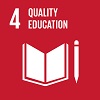 Goal 4 aims to ensure inclusive and equitable quality education and promote lifelong learning opportunities for all. Fair wages and higher incomes under the Fairtrade system mean that families can afford books and uniforms for their school-aged children. Communities can also use the Fairtrade Premium to invest in the programs of their choice, including schools for children in the community, or training and education in farming, gender equality or sustainability for workers.
Goal 4 aims to ensure inclusive and equitable quality education and promote lifelong learning opportunities for all. Fair wages and higher incomes under the Fairtrade system mean that families can afford books and uniforms for their school-aged children. Communities can also use the Fairtrade Premium to invest in the programs of their choice, including schools for children in the community, or training and education in farming, gender equality or sustainability for workers.
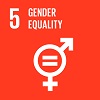 The aim of Goal 5 is to achieve gender equality and empower all women and girls. Fairtrade incorporates gender equality and women’s rights into its programming, to make sure we’re working together towards a better future for all.
The aim of Goal 5 is to achieve gender equality and empower all women and girls. Fairtrade incorporates gender equality and women’s rights into its programming, to make sure we’re working together towards a better future for all.
Goal 8 seeks to promote sustained, inclusive and sustainable economic growth, full and productive employment and decent work for all. Fairtrade works towards a trade system that rejects exploitative or child labour 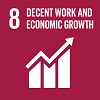 and builds sustainable conditions and pay into the supply chain. We work to make this goal a reality through the Fairtrade Minimum Price that acts as a safety net, covering the cost of sustainable production and the Fairtrade Premium – an additional sum that communities can use to invest in community and business development.
and builds sustainable conditions and pay into the supply chain. We work to make this goal a reality through the Fairtrade Minimum Price that acts as a safety net, covering the cost of sustainable production and the Fairtrade Premium – an additional sum that communities can use to invest in community and business development.
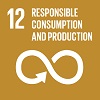 The aim of Goal 12 is to ensure sustainable consumption and production patterns. Fairtrade works with farmers to improve the volume and quality of their crops, while reducing the impact on the environment. We also encourage conscious consumption, by connecting Kiwis to the farmers and workers behind the products they buy.
The aim of Goal 12 is to ensure sustainable consumption and production patterns. Fairtrade works with farmers to improve the volume and quality of their crops, while reducing the impact on the environment. We also encourage conscious consumption, by connecting Kiwis to the farmers and workers behind the products they buy.
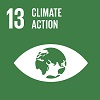 Goal 13 is to take urgent action to combat climate change and its impacts. Fairtrade is increasing support for climate change adaptation efforts by training farmers in new techniques, helping them to grow more resilient crops and working with organisations that can provide specialist tools and training.
Goal 13 is to take urgent action to combat climate change and its impacts. Fairtrade is increasing support for climate change adaptation efforts by training farmers in new techniques, helping them to grow more resilient crops and working with organisations that can provide specialist tools and training.
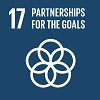 The aim of Goal 17 is to strengthen the means of implementation and revitalise the global partnership for sustainable development. Partnerships are at the heart of Fairtrade’s model – in order to change global trade we partner with every step of the supply chain from producers, businesses through to the end consumers. Fairtrade leverages the strength of its markets to change the lives of farmers and workers in developing countries
The aim of Goal 17 is to strengthen the means of implementation and revitalise the global partnership for sustainable development. Partnerships are at the heart of Fairtrade’s model – in order to change global trade we partner with every step of the supply chain from producers, businesses through to the end consumers. Fairtrade leverages the strength of its markets to change the lives of farmers and workers in developing countries
How can my workplace or business start supporting Fairtrade?
To mark World Fair Trade Day in 2019, you can request a pack with the range of Fairtrade certified products put together exclusively for SBC members – contact [email protected] directly for more information.
Fairtrade is excited to work with more SBC members, as we seek to build on our successful partnerships with Meridian Energy, KPMG and BNZ.
To find out what kind of impact your organisation can have, check out this story about our important work with BNZ.
Give us your details so we can get in touch to let you know just how easy it is to become a Fairtrade-supporting workplace.
Making the switch to Fairtrade showcases to your team, customers and wider network that you’re taking specific action for an environmentally responsible and socially just world, while enjoying a quality cup of tea or coffee. We can’t wait for you to get involved!
Contact: Molly Harriss Olson, CEO of Fairtrade ANZ
Phone:
Email:
